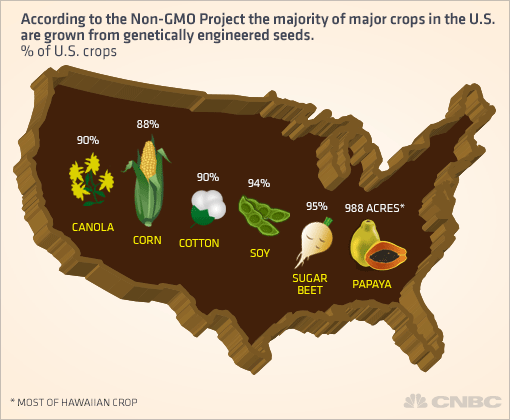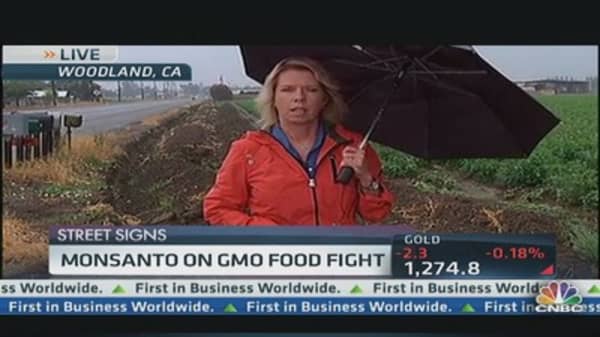Renee Lafitte walked recently through a field of sickly looking corn. "You can see how the leaves are starting to burn," she said, pointing to a stalk where the long green leaves were tipped with brown. "One of the things we're looking for and thinking about going forward is what we anticipate about climate change. We expect things to get worse."
Lafitte is a research fellow with Pioneer Hybrid, the giant seed division owned by DuPont. In this plot of land in Woodland, Calif., she is testing 200 new experimental traits that could help corn survive drought. Genetic improvements are credited with saving the corn and soybean crops during last summer's historic dry spell. Yields ended up being much better than expected.
So-called GMO seeds are used in the vast majority of corn and soybeans grown in this country—crops used to feed livestock which end up at the grocery store meat counter.
But the debate over the effects of tinkering with Mother Nature at a genetic level hasn't gone away in the 17 years since the first seeds were approved for commercial use. While efforts to label foods containing GMO products failed in California last fall, other states have taken up the issue. Anti-GMO activists have organized marches against seed giant Monsanto, and after unapproved Monsanto GMO wheat showed up on a farm in Oregon years after trials had been discontinued, wheat exports were suspended and farmers started filing lawsuits. (How the wheat got there is still being investigated, but Monsanto calls the circumstances "suspicious.")
(Read More: GMO Foods: A Nonprofit Fills Regulatory Void)
"We have not done a very good job of talking about GMOs and how our food is grown," said Cathleen Enright of the Biotechnology Industry Organization, a group representing the major agricultural seed and chemical companies.






